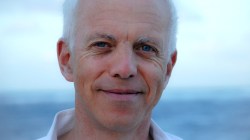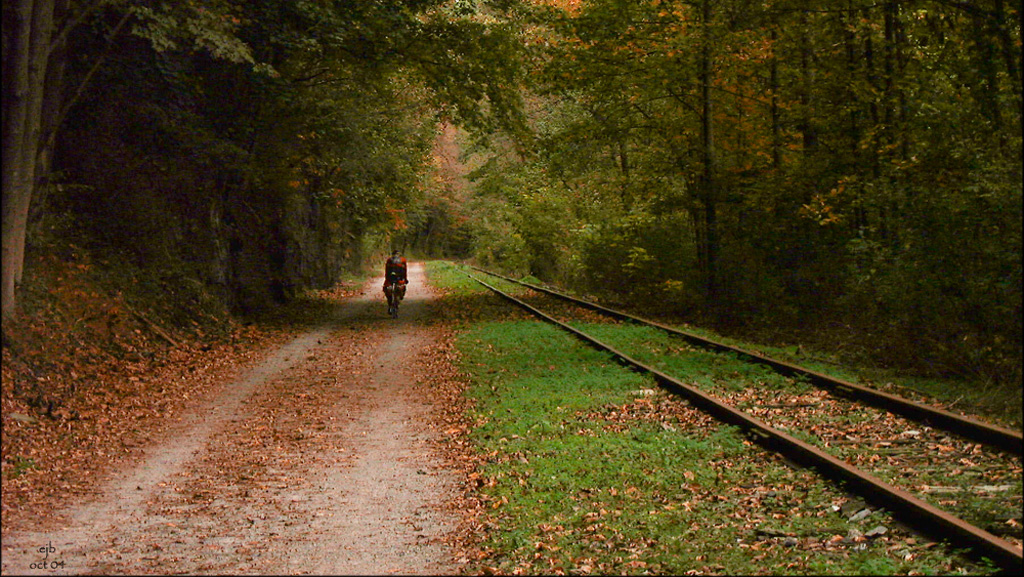For over three decades, David Fenton has played an unusual role in the environmental movement: marketing it. The company he founded, Fenton Communications, has worked with everyone from Nelson Mandela to MoveOn.org. It recently managed an anti-fracking campaign for Yoko Ono (fracking, it promised, would ruin New York’s groundwater, and therefore its bagels and pizza).

David Fenton.
To many environmentalists, what Fenton does — with all the celebrity chefs and celebrities, period — is … a little bit simplistic. To his opponents, he’s the Great Satan. If you find an article about him online, it’s probably a hit piece.
“People working in the nonprofit world sometimes have trouble adopting a marketing mindset,” Fenton Communications wrote in a 2009 report. “But in the end, the goal is for people to ‘buy’ our ideas — ideas for a better world.”
Fenton recently talked with me over the phone about why he avoids the words “planet” and “Earth,” why millennials are perfectly justified in abandoning the word “environmentalist,” and more.
Q. So you started out as a photographer, and later as a PR person for Rolling Stone. What was your first environmental campaign?
A. The No Nukes concert in 1979 with Bruce Springsteen. Thirty-five years ago. Five nights of concerts in Madison Square Garden, plus an album and a motion picture. It definitely helped mobilize popular culture against nuclear power in that era.
That’s one thing the environmental movement still doesn’t do — use popular culture. There are moments, but systematically, the environmental movement tends to be at the institutional level — academics and lawyers and scientists and policy people. Popular culture as a means of communication is not in their DNA.
Really, communications, period, is not in their DNA. If you look at the budgets of environmental groups, only teeny tiny portions are spent on communications. And if you remove the portions spent on building membership and fundraising, it’s even less. It’s better than it was. When I started, environmental groups barely had press secretaries. They certainly have that now.
The other thing is that the foundations that support environmental groups don’t tend to value communications, either. And then I think there’s a deeper issue. George Lakoff, the linguist, talks about this. People who come from the humanities and science, they have a view that if you present the facts quietly to people in power, they will make rational judgements and people will change. And it’s not true. The people on the other side, who go to business school, they understand how the brain really works and how public opinion really works. So they’re talking about values and moral narratives and imagery. They’re good at it. So it’s an out of balance situation.
Q. So the work that you’ve done with MoveOn and Al Gore — that’s had more pragmatic messaging?
A. MoveOn is much better at it than most environmental groups. They used to work with George Lakoff — they were very attuned to that. Al Gore, of course, has accomplished more for communications on global warming than anyone else in the world, through his movie and his slideshow, et cetera.
On the one hand, it’s a very good thing when you ask people on the street, “Who do you associate with climate change,” and the answer you get is Al Gore. The bad thing is, it’s the only answer you’ll get. Which means that we have not created nearly enough well-known people on this issue. If you were going to ask, “What scientist, what expert, what doctor do you associate with climate change?” you’ll get no answer. We need the Carl Sagan or C. Everett Koop of climate change.
The other thing is, our side likes complexity. And in communications, only simplicity works. Our side doesn’t like simplicity because they view it as manipulative or not capturing the truth. Without simplicity, people don’t remember anything. Another thing: The research shows and common sense tells you that that this is a really tough, depressing issue to get your head around. So they really can’t do it unless they know what can be done about it. And we don’t put forward a clear solution. Go out on the street and ask people, “What can we do about climate change?” They won’t know. So we have to make this a lot simpler.
I don’t mean to sound so bleak. Compared to when I started, it’s far better. Just not enough. Forty percent of the public does not believe that humans are changing the planet.
Q. Is there a particular poll you’re referring to?
A. The Pew poll shows it.
Q. One of our reporters just did a story about another Pew study that said that millennials don’t like to be defined as environmentalists. Is this something you agree with?
A. I’m not in favor of using the word “environment.”
Q. What word would you use instead, in talking to millennials?
A. I tell clients, “Don’t use the word ‘planet,’ and don’t use the word ‘earth.’ One of the problems we have is that too much of the public thinks that environmentalists are people who care about the environment and not about people. So the environment has become a thing apart. I think that’s why millennials don’t care for the term.
Now in the case of planet — the planet will be fine. We just won’t be on it. And so this language and these images — “polar bear,” “Planet Earth,” “environment” — they signal the wrong thing to most people, which is that they’re struggling and we don’t care. We have to make the environment and climate be about them and their lives and the economy and justice and all the things that people do care about. And in fact that’s what it’s about, because if we don’t solve climate change, there is going to be a lot of suffering, by average people.
Q. Did environmentalists deserve this reputation that they got?
A. They don’t mean it that way, but they are perceived that way, and yes, that’s their fault. They didn’t pay enough attention to language, to symbols, to communication, to research, and to the concerns of average people. They don’t.
Remember, I’ve been talking about primarily the professional environmental groups. There are grassroots and local communities, around specific issues like toxics and chemicals, that do a better job.
Q. Can you name some really effective environmental campaigns you’ve noticed over your career?
A. The effort to protect old growth forests in the Northwest — a lot of good stuff happened there. And the related efforts to protect a lot of wilderness areas. Clinton saved all that wilderness, and that was the result of some effective campaigning. Among the things we’ve been involved in, two that come to mind are the effort that successfully saved the swordfish from extinction by protecting the fishes in nursing grounds, and that was a campaign led by the nation’s leading chefs in the late ’90s.
Q. Now were they actually the client, or was it someone else?
A. No, it was a group called SeaWeb. Funded by Pew.
And for NRDC in 1989 we did the campaign against the pesticide Alar in apples, where the publicity led the public to stop buying apples until Alar was withdrawn from the market. You can trace a lot of the growth in organic food sales and the organic movement to that date.
I think Gore’s work, especially in 2006 and 2007, especially with the slideshow, had a great impact. It’s one of the more successful campaigns ever. That was a great campaign. I wish that the community had come together and done more work to sustain it.
That’s the other thing about us! Public interest types, across the board — we think because we’ve said something, know something, or done something, that everybody else knows it. We don’t realize the bubble we live in. It’s only when you’ve said something so many times that you’re utterly and completely sick of it that someone has even heard it. Marketers understand this. Scientists and people from the humanities less so — they get bored by it. “We already had our op-ed in the New York Times! The world knows!” But it takes so much more repetition than that.
I mean, as a country, even the intelligentsia has not fully realized that we are in a planetary emergency and we are running rapidly out of time. I like to say, “What if they gave a planetary emergency, and nobody noticed?”
The famous story about this is a classic marketing story. The Dial soap ads used to say “Aren’t you glad you use Dial?” And then the second sentence was, “Don’t you wish everybody did?” After about 10 years of advertising with that statement, they were able to drop the second sentence. That’s because all you had to do was say “Aren’t you glad you used Dial,” and everyone would say, to themselves, “Don’t you wish everybody did?” We need to understand that it takes a lot more repetition to absorb things.



